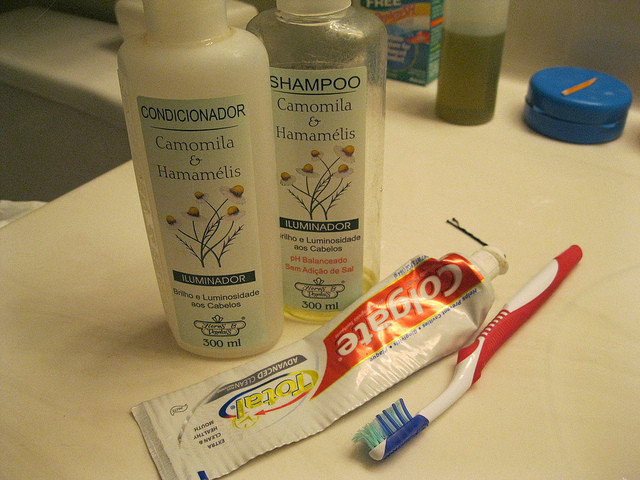Common chemicals found in shampoo, toothpaste, and soap are being linked to early puberty particularly among girls. Parents are usually worried about the chemicals included in some personal care products that their children use, but a new study has discovered that an adverse impact likely starts even before their child is born.
According to a new longitudinal study conducted by the UC Berkeley, girls exposed to chemicals in shampoo, toothpaste, and soap hit early puberty even if their only exposure is when their mothers used such products during pregnancy.
Kim Harley, an associate adjunct professor in the School of Public Health at Berkeley and also the lead author of the study, said whatever we put in our bodies get into our bodies - either we breathe them, pass through the skin, or we unconsciously ingest them. The goal of their study is to understand how these chemicals might be affecting our health.
The study, which was published in the journal Human Reproduction, gathered data as part of the Center for the Health Assessment of Mothers and Children of Salinas (CHAMACOS) research, the South China Morning Post reported. It followed 338 children from before birth until adolescence to find out how environmental exposures create an impact in childhood development.
For the past 20 years, the study has shown that girls, and probably boys, hit puberty earlier and earlier. Researchers said this news is troubling especially since early puberty is being linked to certain conditions, such as increased risk of mental illness, testicular cancer in boys, and ovarian or breast cancer in girls.
Early puberty, also called as precocious puberty, is described when a child's body started changing into that of an adult too soon. For girls, early puberty likely starts before the age of 8, while before the age of 9 for boys. Some of the signs and symptoms for girls include breast growth, and first period (menarche), while deepening voice, facial hair, as well as enlarged testicles and penis for boys.
Harley explains early puberty among girls may lead to social trouble, like an increased tendency towards risky behavior. The chemicals that particularly cause early puberty are phthalates, parabens, and phenols. These chemicals are commonly known as endocrine disrupters in which they actually mimic hormones - prompting children to mature earlier than expected.
The study noted exposures to these chemicals is widespread that's why it's important to inform parents about the findings. Harley said that although further study is still needed, people need to know that chemicals commonly found in personal health care products likely disrupt the hormones in the body.






